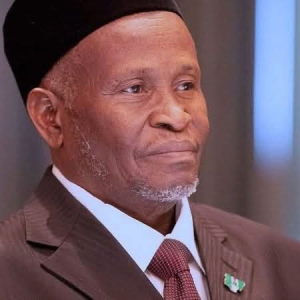
The World Bank has recognized Nigeria’s National Youth Service Corps (NYSC) as a potential catalyst for advancing industrialization and addressing youth unemployment. World Bank Country Director for Nigeria, Dr. Ndiame Diop, urged the Nigerian government to capitalize on the NYSC scheme, emphasizing that it could be a “goldmine” for fostering skills and employment among the nation’s young population.
Speaking at the World Bank and IMF meetings in Washington, D.C., Dr. Diop highlighted the NYSC’s unique ability to prepare Nigeria’s 300,000 to 400,000 annual graduates for the labor market, pointing to the scheme’s potential in supplying firms with skilled workers tailored to their needs. “If you leverage NYSC effectively to provide the right skills, it could be transformative,” he remarked.
Dr. Diop also expressed concern over Nigeria’s 15-17 million out-of-school children, which he identified as a critical barrier to sustainable development. He stressed the importance of enhancing basic education to equip young Nigerians with skills needed in a modern economy.
Additionally, Dr. Diop noted the alarming rate of stunted growth among children under five—approximately 11 million—highlighting that adequate nutrition and healthcare are essential for creating a well-prepared workforce.
The World Bank is currently involved in several projects to address these issues, including initiatives aimed at increasing school attendance and improving quality in education.
One such project focuses on girls’ education in science, technology, engineering, and math (STEM) fields, where female participation remains low. Dr. Diop expressed the importance of breaking stereotypes that discourage girls from entering these fields, noting that female involvement in STEM is crucial for Nigeria’s technological advancement.
Looking at broader economic reforms, Dr. Diop acknowledged the progress in key areas like power, trade, and security. These reforms, he said, are essential for creating a stable environment conducive to growth.
He praised Nigeria’s vibrant private sector, noting that effective public policy and partnerships between the government and private sector could help unlock the country’s vast economic potential.
However, Dr. Diop also recognized the social cost of these reforms, particularly rising inflation, which has affected many Nigerians.
He emphasized the need for the government to allocate savings from reforms toward critical areas like education, health, infrastructure, and social protection, ensuring that citizens feel the tangible benefits of these economic adjustments.







